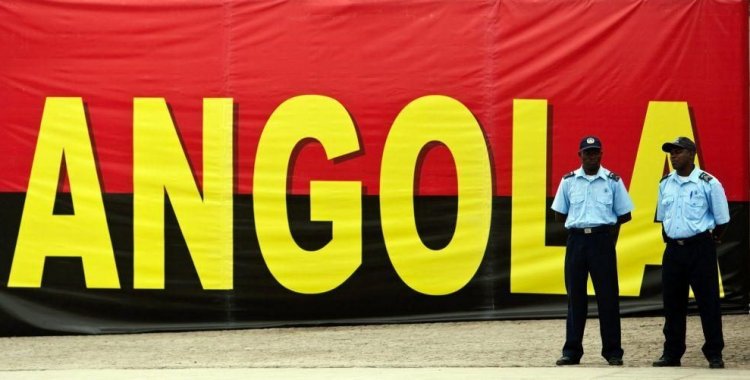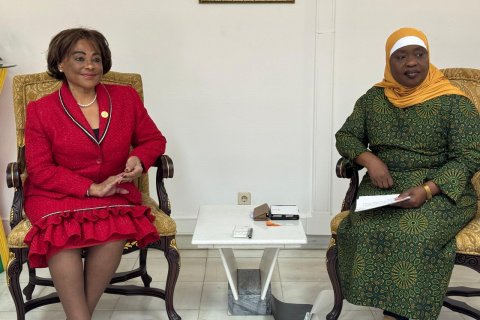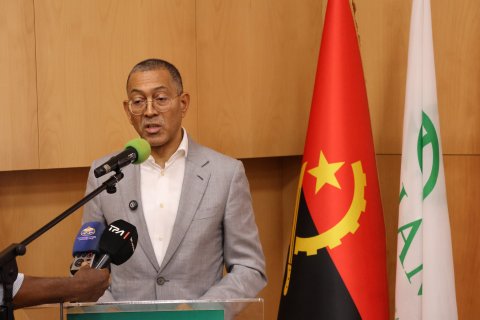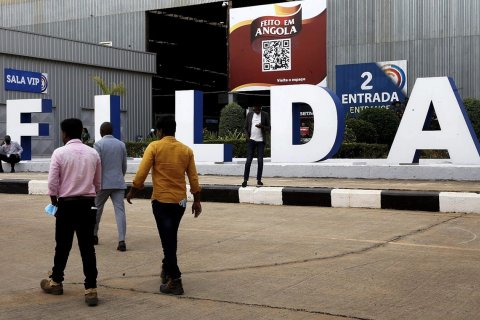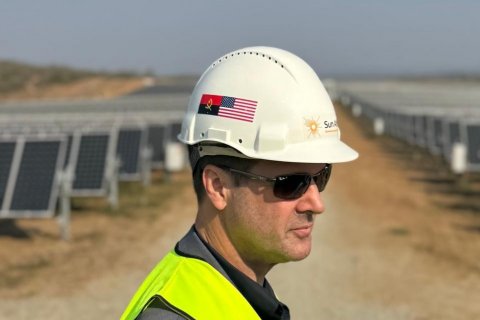The information was provided to Lusa by Father Jose Alceu, responsible for the parish house of the Parish of St. Francis Xavier in the mining town of Cafunfo, according to which the four elements of Mosaiko - Institute for Citizenship have been prevented from leaving since Tuesday night.
"The house has always been surrounded [since they arrived], due to the visit of my guests," he declared, adding that two police officers are kept near the entrance gate of the parish house at all times.
José Alceu said that no official explanations have been given, nor any written document justifying the impediment to circulation.
According to the most recent presidential decree on the situation of public calamity, the entries and exits of Luanda, the only province under sanitary fence, are conditioned to the completion of a serological test, with negative results, valid for seven days, applying the quarantine only to those coming from outside the country.
According to the priest, Mosaiko's team arrived in Cafunfo on February 9 at about 4:30 pm, and a few hours later some police came to the site to "check if they had arrived.
The next day, upon arrival at Mass, he again found police officers already in the courtyard.
"They said they wanted to talk to the Mosaiko elements at the police station. We said we wouldn't go, because there was no summons or notification, so we didn't know what the reason was for going there," he said.
The ten or so police officers withdrew and later showed up again "with a Health authority."
"At that time, they took pictures of the tests [all with negative results and which are obligatory in the various police controls until arriving in the province of Lunda Norte] and suggested that they be quarantined," continued the priest.
José Alceu affirmed that the police control all the entrances and exits of the parish house: "I can go out, but those from Mosaiko, no, they told them not to leave".
The mining town of Cafunfo was the scene of incidents between police and people on January 30, resulting in an undetermined number of deaths and injuries.
On that day, according to the police, about 300 people linked to the Movement of the Portuguese Protectorate Lunda Tchokwe (MPPLT), which for years has defended the autonomy of that region, tried to invade a police station, forcing the forces of order to defend themselves, causing six deaths. The police version is contradicted by the leaders of the MPPLT, opposition political parties and local civil society, which claim that it was an attempt to demonstrate, previously communicated to the authorities, and that the demonstrators were unarmed.
Last Tuesday, deputies from the National Union for Total Independence of Angola (UNITA), the Broad Convergence for the Salvation of Angola (CASA-CE) and the Social Renewal Party (PRS) announced that the incidents in Cafunfo resulted in 23 deaths, 21 wounded and 10 people missing, claiming that the police forces "fired indiscriminately against citizens."
On Wednesday, UNITA revised these figures, when it released a report by the five deputies of that party who went to Cafunfo, along with two civic activists, but were prevented by the police from entering the mining town, stating that at least 28 people died in a "barbaric, hideous and cold" way and 18 were wounded.
In the document, which contradicts the version of an act of rebellion and speaks of a protest with 93 demonstrators, the UNITA deputies demanded "responsibility from the actors of the massacre.
The Political Bureau of the Popular Movement for the Liberation of Angola (MPLA) defended the actions of the state and criticized the position of political leaders and personalities from civil society and the church who condemned the incidents.
The body stressed that the democratic opening since the election of President, João Lourenço, in 2017, "is something that is here to stay," but maintained that the government has found that this greater freedom of the press, expression, assembly and demonstration, "is serving to promote disrespect for the Constitution and the law, national symbols, disrespect for the established authority, public assets and private property."
In a note released last week, he stressed that "those who want the instability of Angola should know that when a group of national and foreign citizens armed with firearms, bladed weapons and blunt objects" attack at dawn a police station, a military barracks or an organ of sovereignty, "is not making a demonstration, but an armed rebellion that deserves the vigorous reaction of any state.
In a statement released Tuesday after the 3rd ordinary meeting of the Secretariat of the Political Bureau of the MPLA Central Committee, chaired by Vice President Luisa Damião, the party again condemned the incitement to instability, reiterating that "the Republic of Angola is indivisible, inviolable and inalienable," so that "all attempts to divide the Angolans or to violate national sovereignty will be vigorously combated.

